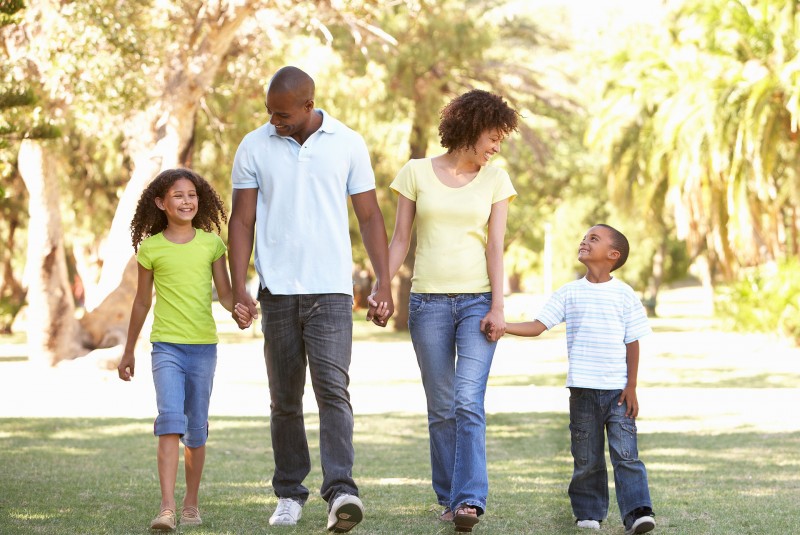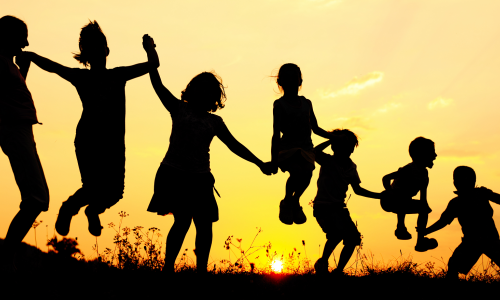How to educate children to end violence?
The act of educating a child so they do not reproduce violence in society seems to be an increasingly difficult and complex task for many people.
Unfortunately, nowadays we are seeing negative influences that compete, and often unfairly, with the strategies of parents in the education of their children.
It is possible, however, to improve this reality through the experience of Fraternal Love. How? “You have to disarm human hearts from infancy,” the President-Preacher of the Religion of God, of the Christ, and of the Holy Spirit1, José de Paiva Netto, has been teaching for decades.
With regard to this concept, he explains in his article “Disarming Hearts”:
“You need to deactivate explosives and put a stop to the grudges that insist on living in human hearts. This is the great message of the Religion of the Third Millennium, which takes its inspiration from Christ, the Prince of Peace: disarm the anger that fires guns with a force that’s greater than hatred. This is a work of education with a broad spectrum; but it’s more than this, it’s reeducation. And this powerful energy is Love. But not the still incipient love of men, but the Love of God, which we all need to feed on. We have the most powerful tool in the world in our own hands. It’s this that’s going to avoid the different types of war, which from the beginning are born in the Souls of living beings, when the Soul is sick.”

So it’s very necessary to promote education for Peace. After all, having a child is a commitment, which is above all a spiritual commitment. Whether the parents are biological or adoptive, they do not just have a legal responsibility to educate their children.
We believe there is a tie that goes beyond the material laws, which is the result of a commitment assumed with God and that has to be honored.
As a result, this zeal must already be present during the pregnancy. At the same time that the mother takes care with the food that’s eaten, with physical acts and medication, because they may have an influence on the baby’s biological and neurological formation, she (and the whole family) also needs to pray, make good choices as to the environments they frequent, the music they listen to, the words they speak to those around them and so many other situations that can create a positive vibe.
After all, it has been scientifically proven that all this is picked up by the baby while it’s still in the mother’s womb.
Attitudes for putting an end to violence
The care that’s taken with educating with love and, therefore, distancing the children from violence, continues throughout the whole of the childhood period. Parents need to be attentive to the first signs of negative feelings on the part of their children.
These feelings may appear in a conflict with their brothers or sisters or school colleagues, a bullying attitude, the mistreatment of animals, a lack of compassion for the suffering of others and so many other examples of situations.
Attention to these types of behavior is very necessary, because parents may find it more difficult to perceive them and may justify them by saying that their children are still “too small” to realize what they are doing.
Teaching your children that they should not swear at other people, that it’s not right to laugh at a friend when they fall or are sad, and that words also hurt people (even if they do not leave visible marks), are simple acts that make all the difference in education for life.
That’s why it’s essential that parents set a good example and construct a healthy dialogue with their children.
It’s also important to stress that those responsible need to be firm when it’s necessary to correct behavior. Some decisions will upset your children at that particular moment in time, but they’ll be very useful as part of their upbringing.
But this firmness should be filled with Love and children must perceive this through the examples their parents set, showing that they love them and that is why they are educating them.
“The heart is more willing to listen when Love is the basis of dialogue,” points out Paiva Netto.
Read more:
+ How to Protect Children and Young People from the Dangers of the World?
+ What Can We Do for There to Be Peace in the Family?
Educate and reeducate with Jesus!
In the Gospel of Jesus according to Luke 6:43, we find the following statement from the Heavenly Educator:
“No good tree bears bad fruit, nor does a bad tree bear good fruit.”
That is why promoting Peace is a commitment of the whole family, with the parents. To strengthen the ties, improve the atmosphere in the home and seek inspiration for educating children well, there’s nothing better than reading the Gospel and the Apocalypse of Jesus. In the Religion of the Third Millennium they are always studied in Spirit and Truth, in the light of the New Commandment of Jesus:
“Love one another, as I have loved you. Only by this shall all of you be recognized as my disciples,” the Gospel according to John 13:34 and 35.
For this study, at least once a week in a moment of Prayer, the Ecumenical Meeting of the New Commandment of Jesus at Home.

+ See our suggestions on how to organize it.
Parents must look after the seeds that God gave them well, with Love and with the necessary corrections. In this way they will germinate and become leafy trees that will bear good fruit for society; fruit that will help disarm hearts.
Yes! This is also a mission for parents: to raise their children so they can disarm hearts and work for a Culture of Peace, for a Solidary, Altruistic, and Ecumenical society.
Read more:
+ How to Protect Children and Young People from the Dangers of the World?
+ What Can We Do for There to Be Peace in the Family?
If you have any question and/or comment about this and other topics, send them to the Religion of the Third Millennium. Let the Ecumenical Spirituality become a part of your life! And if you felt good reading this article, share it! It might touch the heart of other people too.
________________
1 Religion of God, of the Christ, and of the Holy Spirit — also called the Religion of the Third Millennium, and the Religion of Universal Love. This is the Ecumenical Religion of Brazil and the world.



